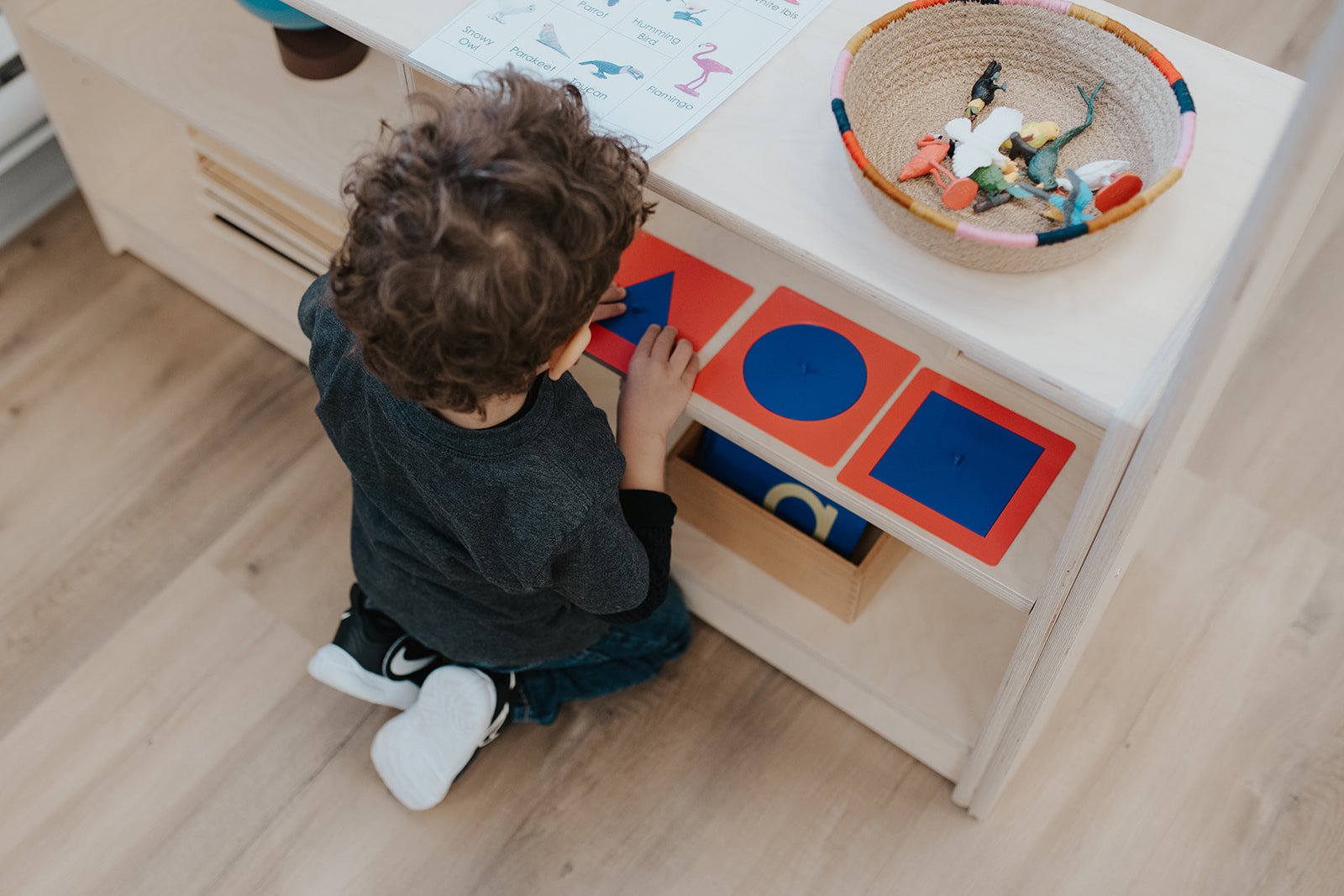
Our Guiding Curriculum
Montessori Education
Montessori education is an educational approach developed by Dr. Maria Montessori, an Italian physician and educator, in the early 20th century. At its core, Montessori education is based on the belief that children are naturally curious and possess an inherent desire to learn.
In a Montessori classroom, the environment is carefully prepared to meet the developmental needs of each child. It is a space filled with purposeful materials that encourage exploration, discovery, and hands-on learning. Children are given the freedom to choose their activities and work at their own pace, allowing them to develop a deep sense of self-direction and the ability to make meaningful choices.
The Montessori method emphasizes a holistic approach to education, addressing the development of the whole child—intellectually, socially, emotionally, and physically. The curriculum encompasses a wide range of subjects, including practical life skills, sensorial exploration, language development, mathematics, cultural studies, and the arts. By engaging in purposeful activities, children naturally absorb essential concepts and develop a lifelong love for learning.
We believe that Montessori education is not just a way of teaching but a way of life. It equips children with the skills and mindset necessary to thrive in an ever-changing world. Montessori graduates are known for their critical thinking abilities, self-motivation, creativity, and adaptability. They become confident, independent learners who are well-prepared to tackle challenges and contribute positively to society.
At our Purpose Preschool, we embrace the principles of Montessori education while also considering 21st-century research and providing a nurturing environment where children can flourish.
If you would like to dive more into the Montessori Principles, please take a look at our blog post “Exploring the Montessori Method: Key Principles and Practices”.


